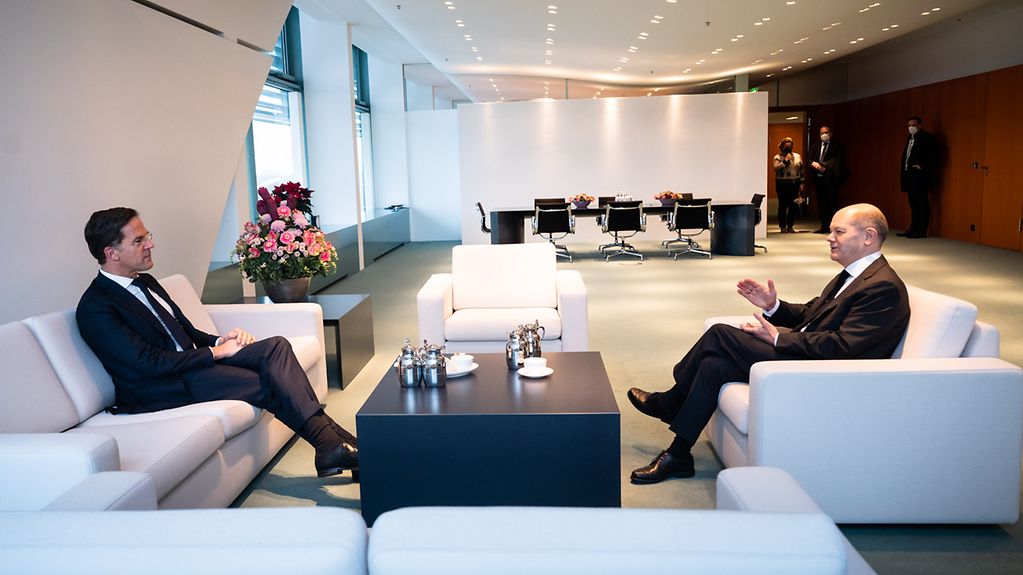Federal Chancellor Scholz receives Prime Minister Rutte
Germany and the Netherlands share common values and the two governments have similar goals, for example in the areas of climate protection, energy and foreign policy. This was emphasised by Federal Chancellor Scholz at the inaugural visit of the re-elected Dutch Prime Minister Rutte to Berlin. One important concern was to achieve climate neutrality, he said.
2 min reading time

Federal Chancellor Olaf Scholz received the Prime Minister of the Netherlands, Mark Rutte, in Berlin.
Photo: Federal Government
Not only were “our two countries bound by a very good friendship”, said Olaf Scholz, which was long-standing and ought to be further deepened: the governments of Germany and the Netherlands were also pursuing “similar objectives”, as was clear from the coalition agreements. This was what the Federal Chancellor said at a joint press briefing after talks with Dutch Prime Minister Mark Rutte at the Federal Chancellery in Berlin on Thursday.
Tackling a range of different tasks together
A common perspective guided the actions of the two countries regarding climate protection and renewable energies, Scholz continued, as well as in the area of housing construction and in particular when it came to current foreign policy issues. As members of the EU and NATO, Germany and the Netherlands shared common values, stressed the Federal Chancellor.
54-year-old Mark Rutte has been Prime Minister of the Kingdom of the Netherlands since 2010. His fourth cabinet was sworn in by Dutch King Willem-Alexander on 10 January 2022.
Government consultations planned soon
“Our aim is to continue and further enhance our sound collaboration,” said Scholz. For this reason, he said, the two leaders had agreed to continue to pursue bilateral government consultations soon and to meet for this purpose.
De-escalating the situation in Ukraine
With regard to current challenges in international politics, Federal Chancellor Scholz focused particularly on the developments relating to Ukraine. Russia was undertaking “significant troop concentrations”, he said. All joint efforts had to be dedicated to de-escalating this situation, Scholz urged.
There was agreement that military aggression by Russia would have serious consequences, said the Federal Chancellor, so now it was a question of preventing this from happening. The Federal Chancellor noted that there were various forums through which it was possible to find a constructive way out of the current crisis, such as the NATO-Russia Council, the OSCE or the Normandy format. Together with France, Germany would continue its efforts to revive the Normandy talks, he said.
Climate neutrality as a goal
In terms of European policy, the successful ecological restructuring of the national economies was a central concern, said Scholz. “The aim is to achieve climate neutrality quickly,” Scholz confirmed. He spoke of a “major modernisation task facing our national economies,” saying that Germany would provide the necessary support for the European Commission’s ambitious climate protection plans for this reason.